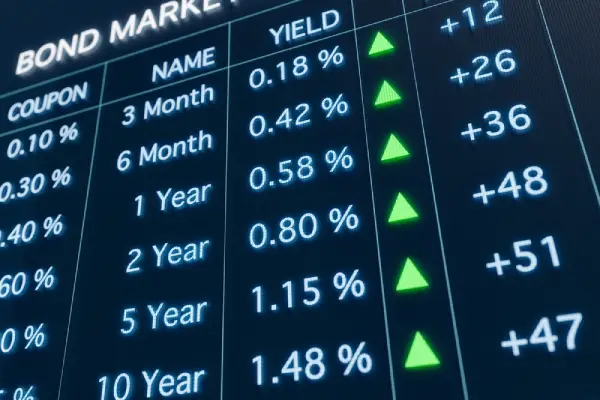There are several steps to decide if a corporate bond index fund is the right investment for you. Typically, corporate bond funds invest in fixed interest securities from corporate bonds. Depending on the fund, it can pay a fixed or variable interest rate and behave much like a loan. Usually, changes in interest rates can impact the value of these securities. Simultaneously, liquidity restraints can also affect these funds, causing smaller companies to trade shares less often and in smaller amounts. As an investor, you need to know how to tell if a corporate bond index fund is right for your portfolio. This way, you can increase your returns. Read on to learn about how to decide if a corporate bond index fund is the right investment.
Weigh Passive Management
First, you should weigh passive income management to decide if a corporate bond index fund is right for you. Unlike other ETFs and mutual funds, index funds are usually passively managed. Thus, the fund holds the bonds that are listed on the index it’s matching. In some cases, funds may utilize a sample of bonds from the index as well. Then, the corporate bond index fund’s holdings can change to reflect the index as it updates. When funds are actively managed, the manager may attempt to choose bonds that outperform the index. Often, this leads to higher management fees on the investment. In short, weigh passive management as you assess if corporate bond index funds are right for you.
Evaluate Fees
Next, evaluate fees to determine if a corporate bond index fund is right for your portfolio. With these passively managed funds, you can usually incur lower costs for management and operations. Indeed, you do not have extra payments to a side manager running the fund. On the other hand, an active fund manager cautiously selects securities to try to beat the index. Since this takes more management, this usually results in higher fees. Over time, this can take a major chunk from your return, especially with low-yield interest rates. Absolutely, evaluate fees to determine if corporate bond index funds are right for you.
Assess Portfolio Diversification Needs
In addition, assess your portfolio diversification needs to decide if a corporate bond index fund is right for you. Typically, bond funds own a variety of individual bonds with differing maturities. Therefore, one bond’s performance won’t significantly impact your investment if the issuer fails to pay interest or principal. Plus, the fund is naturally diversified in the corporate sector for investors who can benefit from the extra exposure. Usually, investment minimums for bond index funds are low enough that you can get more diversification for a lower cost than an individual bond. Undoubtedly, assess your portfolio diversification needs to decide if a corporate bond index fund is right for you.
Check Performance
The best corporate bond index funds have a proven track record of returns. Low and high yield corporate bonds fluctuate with the market price, premiums and spreads. Evaluate the number of holdings and the performance of those bonds. Then, analyze the number of years to maturity. These dates may impact your timeframe and fund investment. Additionally, you can check the effective duration for when the bond value is calculated into expected cash. Of course, you should note the estimated yield to maturity. This is the average of all the bonds’ yield to maturity held within the fund. Certainly, you should do your due diligence for fund history and performance before making a decisions. And, speak with your financial professional about your unique needs.
Consider Risk
Of course, you need to review risk levels to assess if a corporate bond index fund is right for you. As a corporate-level bond, these investment holdings fall low on a risk reward scale. This indicates that they are relatively safe investments for a diversified, risk tolerant portfolio. Certainly, any assets within these index funds can still lose value over short or long time horizons. Therefore, you should expect total value to fluctuate throughout asset ownership. Oftentimes, these volatile fluctuations are similar to the rest of the stock market. Naturally, this makes risk forecasting much easier and accurate as well. Definitely, carefully analyze risk levels to determine if a corporate bond index fund is the right investment.
There are several key steps to determine if corporate bond index funds are the right investment for your business. To start off, weigh out the risks and outcomes of passive management investments. Next, evaluate the investing and trading fees and rates associated with these funds. If expenses are reasonable, you should carefully analyze your portfolio diversification needs, preferences, and requirements. Afterwards, take time to factor in risk. Of course, you should also factor historical fund performance into your overall investment decision. Follow the points highlighted above to learn if a corporate bond index fund is the right investment.
 Business First Family Business, Accounting, Finance, Investing, Marketing And Management
Business First Family Business, Accounting, Finance, Investing, Marketing And Management
